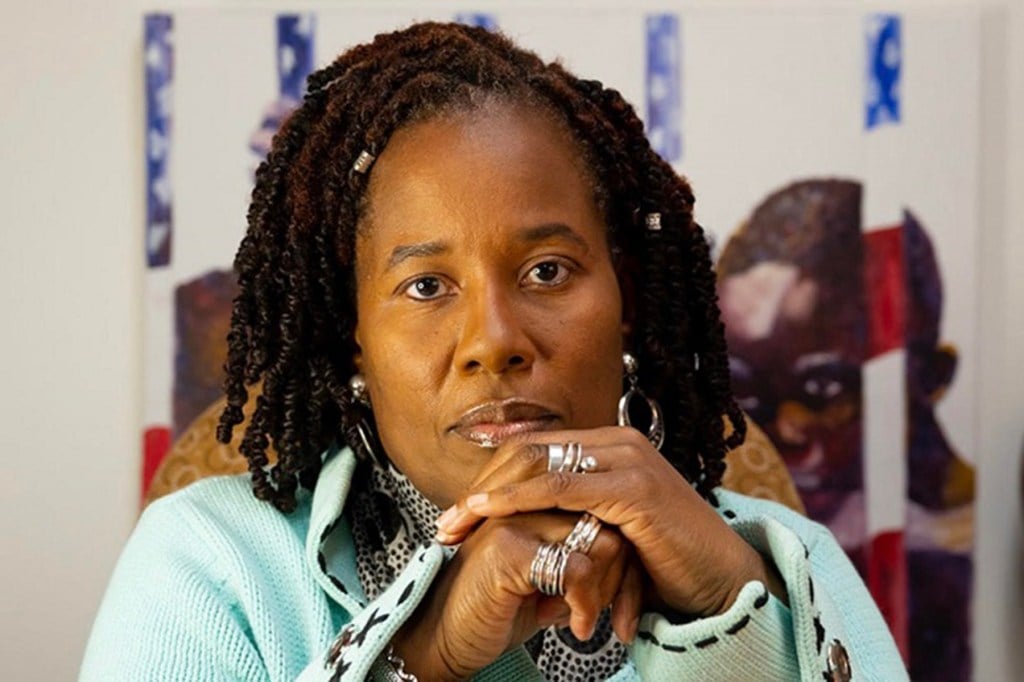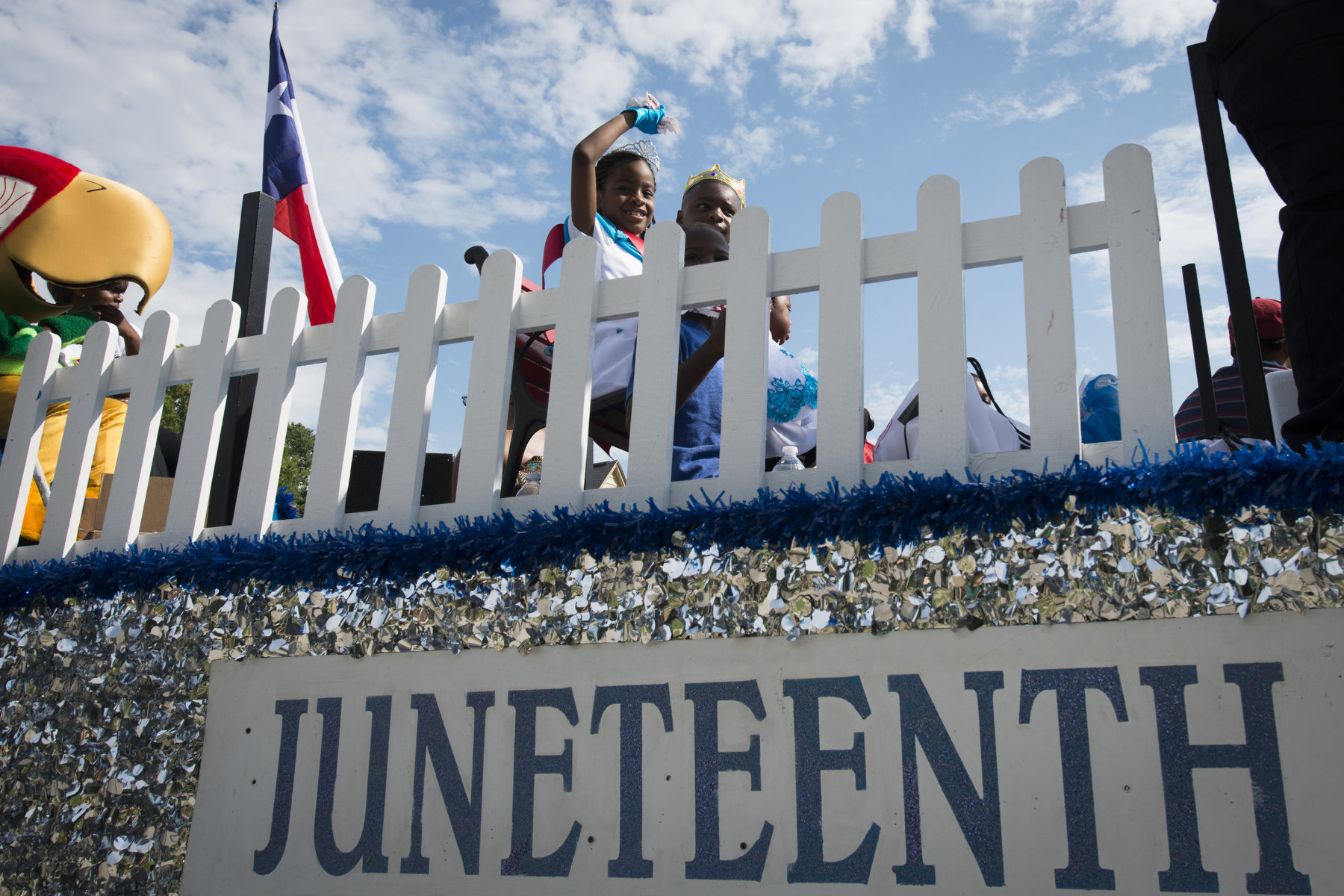Thursday marks the first national observance under President Donald Trump of Juneteenth, the day commemorating the end of slavery in the United States that became a federal holiday in 2021.
This year, it comes as Trump’s presidency has been marked by attacks on diversity, equity and inclusion and attempts to erase and minimize Black history as part of the American story. What does it mean to claim resistance and resilience in an age of exclusion?
For perspective on how to consider Juneteenth this year, I spoke to Dr. Kaye Wise Whitehead, president of the Association for the Study of African American Life and History, the organization that founded Black History Month. Whitehead shared her insights on the politics of history, memory and race and why traditions matter even more in the current political climate.
This interview has been edited for length and clarity.
Errin Haines: How do you understand the meaning of Juneteenth — not just as a holiday, but as a marker of America’s unfinished work?
Kaye Wise Whitehead: The country has significantly changed between January 19, 2025, and today. Every single thing that we have fought for — that, I would argue, we began to take a little bit for granted — has either been canceled, erased or is under fire. Juneteenth is no different.
We don’t wait to be celebrated; we celebrate ourselves. We celebrate our history, and we celebrate our contributions to this country. Our lives and our histories are etched into the stones of the buildings. So we don’t have to have a proclamation from anyone else but ourselves.
What does it mean to celebrate emancipation in a political era marked by rollbacks of civil rights and diversity policies?
This is why it’s even more important that we take a moment to stop and understand the significance of Juneteeth. Juneteenth, as a holiday, has been celebrated within the Black communities of Texas and Louisiana since right after American slavery ended. They did not wait for it to be a holiday.
That is really the message of the American historical narrative. It is the people that lead the government. It’s not government leading the people. It is “We the People.” And Juneteenth is a great example of that.
If we don’t center the teaching and the understanding of Black history, if we don’t amplify it, if we don’t force it onto America’s agenda, then it can be erased. People don’t understand that if you erase the contributions of Black people to America, you are essentially erasing the American historical narrative, because Black history is American history. It is tied to the fabric that makes up the blanket of this country.
Juneteenth is a celebration. It is a time of firing up the grill, it is a time to line dance, of getting out the fans, and celebrating the beauty and the wonder and the joy that is essentially in the heart of Black culture. Our culture is not rooted in just tears and tragedy and trauma and slavery and oppression and lynching. Our culture is rooted in joy and laughter and tenacity and the ability to overcome and find places of happiness despite what the situation is around us.
What parallels do you see between the delayed freedom of Juneteenth and the current efforts to delay or deny racial progress — whether in education, policy or civic life?
We are not powerless in the face of those who seek to erase us. In fact, this is the best time for us to reclaim our power — our history is a part of this story. We can turn all of our spaces into freedom schools: a church basement, if you’re standing in the middle of a coffee shop, if you’re sitting with young children. You put it on your bags, you put it on your T-shirt, you put it on your social media. They can’t stop us from telling our story. Even though they are banning books, they don’t stop me from buying books and giving them to people. We have to take back our power in this moment, because otherwise, that is how authoritarianism wins. It makes you believe you’re powerless.
You’ve spoken and written powerfully about memory as resistance. How does celebrating Juneteenth become a form of resistance in a time of historical erasure?
I argue that you only have four choices right now. You fight, which to me means practicing small, daily acts of resistance. You have flight: If you have an exit plan, you activate it — and most folks do not. You freeze, and you pretend that everything is normal and that you pretend you can’t do anything. Or you fawn: You bend your knee and you kiss the ring and say, “I support this administration.”
I’m telling people, choose to fight and practice small, daily acts of resistance. Unfortunately, in this environment, celebrating Juneteenth is an act of resistance.
I believe that this moment is about both reclaiming the historical memory, but it’s also about a moment of looking forward, because if we stand right now and say that we’re not going to be erased, we are holding fast to our memory, we’re holding fast to our history, we’re holding fast to our contributions, then we’re laying the groundwork, setting up the framework for what’s going to come next.

What role have Black women played — historically and now — in defending and advancing the truth of our history against efforts to distort or erase it?
Black women have always been, as Zora Neale Hurston has said, “the mules of the world.” I talk about this as Black women being the ones that are willing to push and carry this country forward, because that is what we have done, whether it was during the time of American slavery trying to hold our family together, whether it was using quilts to stitch a road to freedom, whether it was braiding in routes to freedom in the hair of our children. Or as 19th-century women lifting as they climb, setting up club groups, raising money for the family, or coming today with the political activism that Black women have continued to be involved in and have continued to stand firm on trying to save this country, politically, culturally, socially and economically, for hundreds of years.
We’re at a moment now where a number of Black women are saying, “This is a moment that we sit out. We are tired. We’re exhausted. We’ve been teaching and reteaching the same lessons.” I’m making the argument that as much as I want to sit down, I cannot, as much as I want to stop I cannot. I can take rest breaks, but I do have to keep pushing the work, I do have to keep getting involved politically. I do have to keep talking about the reclamation of memory and history. I do have to keep standing up and resisting, even in very small ways. We are planting seeds for trees that will never give us shade. I am very clear that the work I’m doing right now is not work that I’m going to actually benefit from.
So then, what does rest, joy and celebration look like for Black women in this political climate? How do Black women hold space for both resistance and restoration?
That’s where Juneteenth comes in! Juneteenth is a great example of resistance and restoration. I’m telling Black women like I tell myself: No one’s asking you to fight 24/7, we’re not looking for that. Even Harriet Tubman rested. So where are the moments when you can actively get involved without draining your social battery? Maybe it’s an economic choice that you made. I can choose to vote with my feet, to vote with my dollars, write an op-ed. I can’t go out and march, but I can call into the radio station, I can give $5 to the institutions and the organizations that are holding up the work. That’s what restoration and resistance look like. You choose the moments when you can engage and then you practice radical self-care when you can’t — and be honest with yourself about what those moments look like.
For people who feel disheartened by the moment we’re in, what do you say about the power of showing up?
I’m gonna say this, and I know that it goes to the opposite of what a number of folks are saying right now, but our ancestors didn’t stop.
We can’t be the generation that stops. I know I’m tired, but I can’t be the one where the baton stops. As much as we want to stop in this moment, we have so much to lose. We cannot offer our children and their children a world that’s so destructive and just falling apart because we got tired and we stopped.
If Juneteenth is a mirror, what should we be reflecting on this year?
I would not say Juneteenth is a mirror; I would say Juneteenth is a prism into what we used to be, into who we are now, and into who we can be.
I think Juneteenth this year should be a space of radical imagination. It is clear that whatever this form of “democracy” has been, it does not exist anymore. I don’t want to go back to that. That was not a space of freedom, equality and diversity. That was not a space where we could rest.
So since that system is collapsing all around us, let’s use Juneteenth as a moment of radical imagination. What should come next? What exactly are we working for? Because at times I ask myself, “What am I fighting to save?” We need to have a plan for how we go forward, not their plan, but our plan.
That’s how we should celebrate and uplift Juneteenth: Throw up the grill, party, get the fans going — and then while people are sitting around the table and they’re passing the beans and the corn, say, “What should come next?” Let’s get some plans on paper. Let’s start getting people into the room to have these conversations. Standing still is not what we want to do at this moment.






